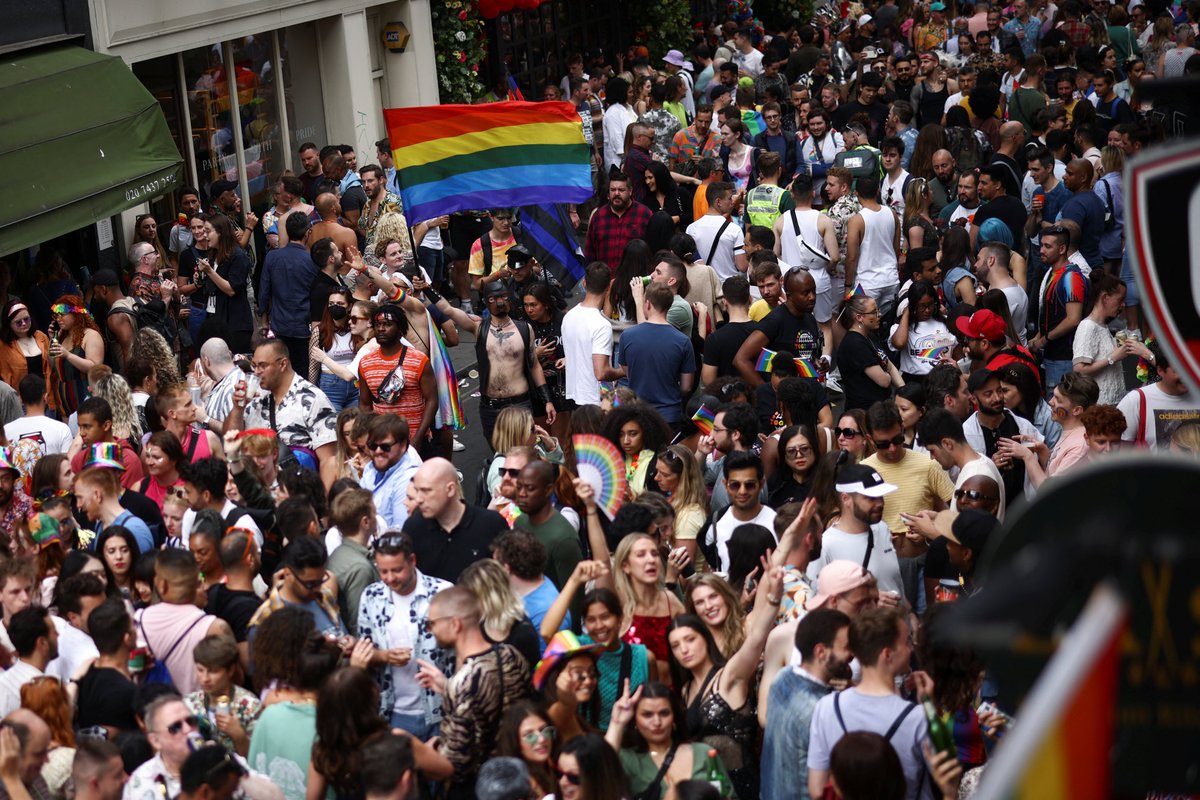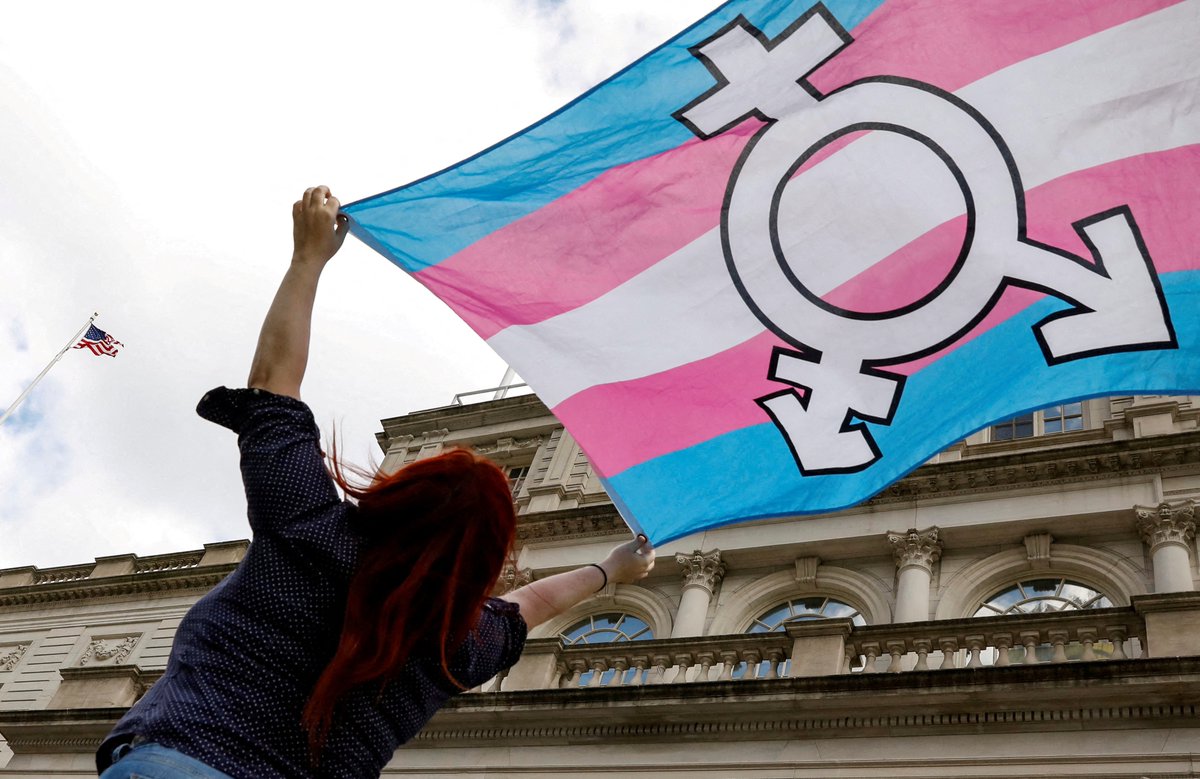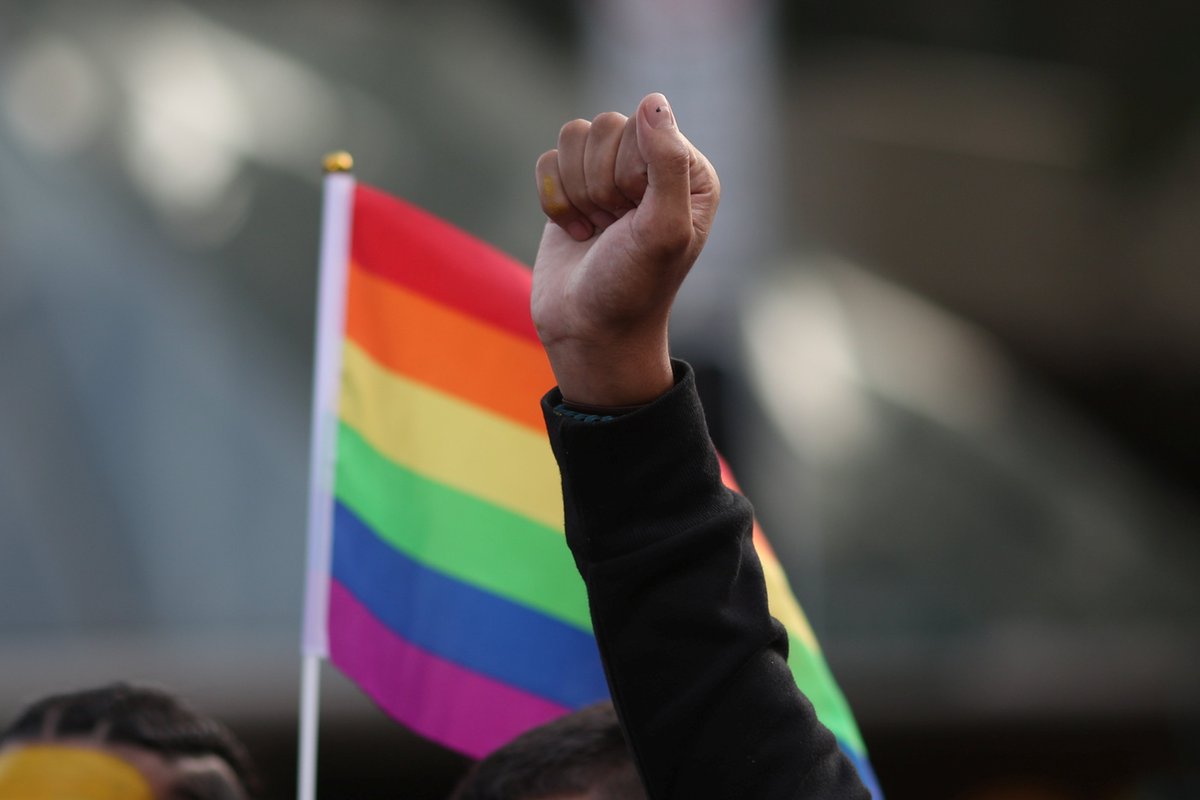
💭 Do you know how to be gender-neutral in your native tongue?
🗣️ On #InternationalNonbinaryDay – halfway between International Women’s and International Men’s Day – we’re taking a deep-dive into non-binary language.
🌍 Join @enriqueanarte on a linguistic trip around the globe.
🗣️ On #InternationalNonbinaryDay – halfway between International Women’s and International Men’s Day – we’re taking a deep-dive into non-binary language.
🌍 Join @enriqueanarte on a linguistic trip around the globe.
🇮🇹 Italian
Highly gendered languages like Italian can make being non-binary difficult.
But some have found a solution in ə – “schwa” – which can replace gender markers.
While even some officials use ə, many remain critical, saying it endangers the Italian language.
Highly gendered languages like Italian can make being non-binary difficult.
But some have found a solution in ə – “schwa” – which can replace gender markers.
While even some officials use ə, many remain critical, saying it endangers the Italian language.
🇬🇷 Greek
Many non-binary and genderqueer Greeks use the plural pronoun 'αυτοί' which encompasses all genders.
In Greek there are also articles before names. Many prefer the neutral 'το' here instead of the traditional gendered options.
Many non-binary and genderqueer Greeks use the plural pronoun 'αυτοί' which encompasses all genders.
In Greek there are also articles before names. Many prefer the neutral 'το' here instead of the traditional gendered options.
🇵🇱 Polish
The pronouns 'ono'/'jenu' are used by many non-binary Poles instead of the masculine and feminine forms.
But by using those pronouns, many other words will change. Here’s why. 👇
The pronouns 'ono'/'jenu' are used by many non-binary Poles instead of the masculine and feminine forms.
But by using those pronouns, many other words will change. Here’s why. 👇
🇳🇴 Norwegian
The Language Council of Norway officially added the gender-neutral pronoun 'hen' to its dictionaries this year.
It can replace the masculine 'han' and the feminine 'hun' – he and she – when used.
The Language Council of Norway officially added the gender-neutral pronoun 'hen' to its dictionaries this year.
It can replace the masculine 'han' and the feminine 'hun' – he and she – when used.
🇨🇿 Czech
Czech is a very gendered language, meaning other words have gender markers apart from pronouns.
One way to make written words non-binary is by using a * to split gender markers, as @enriqueanarte shows below.
But when speaking many freely switch between genders.
Czech is a very gendered language, meaning other words have gender markers apart from pronouns.
One way to make written words non-binary is by using a * to split gender markers, as @enriqueanarte shows below.
But when speaking many freely switch between genders.
🇵🇹 🇧🇷 Portuguese
'Elu'/'Elus' can be used instead of the traditional masculine and feminine forms.
To make the language more gender-neutral, add the suffix '-e' instead of '-o' and '-a' for words like nouns and adjectives.
'Elu'/'Elus' can be used instead of the traditional masculine and feminine forms.
To make the language more gender-neutral, add the suffix '-e' instead of '-o' and '-a' for words like nouns and adjectives.
🇪🇸 Spanish
Similar to Portuguese, Spanish non-binary speakers also often replace the traditional gender markers with an ‘-e’ instead.
Similar to Portuguese, Spanish non-binary speakers also often replace the traditional gender markers with an ‘-e’ instead.
🇧🇬 Bulgarian
Non-binary Bulgarians can use the plural, non-gendered pronoun 'те' instead of the masculine 'той' and feminine 'тя'.
For nouns and adjectives, many combine the plural pronoun 'те' with the singular, traditional masculine form.
Non-binary Bulgarians can use the plural, non-gendered pronoun 'те' instead of the masculine 'той' and feminine 'тя'.
For nouns and adjectives, many combine the plural pronoun 'те' with the singular, traditional masculine form.
🇩🇪 German
Gender markers are everywhere in German, and traditionally the masculine form has been used to include everyone.
But by adding an asterisk* before the feminine marker when written – and a pause when spoken - you can include both women and non-binary people.
Gender markers are everywhere in German, and traditionally the masculine form has been used to include everyone.
But by adding an asterisk* before the feminine marker when written – and a pause when spoken - you can include both women and non-binary people.
🇷🇴 Romanian
The plural pronouns 'ei'/'lor' is popular among Romanian-speaking non-binary people as an alternative to masculine and feminine forms.
However, many other words will then change when using gender-neutral pronouns. @enriqueanarte explains.
The plural pronouns 'ei'/'lor' is popular among Romanian-speaking non-binary people as an alternative to masculine and feminine forms.
However, many other words will then change when using gender-neutral pronouns. @enriqueanarte explains.
🇦🇱 Albanian
'Ai' and 'ajo' are the masculine and feminine pronouns in Albanian.
To make the language more non-binary friendly, many use the plural 'ata' instead – but be aware that words like names and adjectives will change accordingly.
'Ai' and 'ajo' are the masculine and feminine pronouns in Albanian.
To make the language more non-binary friendly, many use the plural 'ata' instead – but be aware that words like names and adjectives will change accordingly.
🤔 Are you curious about more languages?
🧵 Take a look at this thread where we explain how to be non-binary in Arabic, Mandarin, Hebrew and many more.
twitter.com/i/events/14153…
🧵 Take a look at this thread where we explain how to be non-binary in Arabic, Mandarin, Hebrew and many more.
twitter.com/i/events/14153…
❗️ ...and finally: non-binary pronouns are far from a new phenomenon. @ShivaniDave tells us more.
🗣️ How can you be gender-neutral in your language?
👇 Share with us below!
👇 Share with us below!
• • •
Missing some Tweet in this thread? You can try to
force a refresh


















